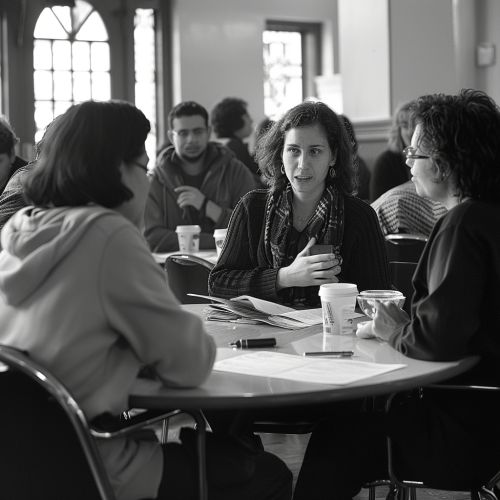Groupthink
Definition and Concept
Groupthink is a psychological phenomenon that occurs within a group of people, in which the desire for harmony or conformity in the group results in an irrational or dysfunctional decision-making outcome. The term was coined by social psychologist Irving Janis in 1972. Group members try to minimize conflict and reach a consensus decision without critical evaluation of alternative viewpoints, by actively suppressing dissenting viewpoints, and by isolating themselves from outside influences.
Characteristics of Groupthink
Janis has indicated that groupthink involves three main characteristics. These are:
- Overestimations of the group — its power and morality
- Closed-mindedness
- Pressures toward uniformity
Overestimations of the Group
Groups involved in this process tend to ignore possible moral problems and ignore the consequences of their actions. They believe their decisions are morally superior while also believing that they are invulnerable. This often results in irrational and dehumanizing actions against out-group members.
Closed-mindedness
Groupthink involves a significant amount of rationalization that what the group is doing is right. There are also stereotypes about those who are outside the group. They are seen as different and possibly even evil.
Pressures Toward Uniformity
The group puts significant pressure on individuals who argue against the beliefs of the group. This often results in self-censorship, in which members of the group seek to hide their feelings. The illusion of unanimity is a belief that everyone is in agreement and feels the same way. Mindguards are also often present to protect the group from negative information.
Causes of Groupthink
There are several causes of groupthink. These include:
- High group cohesiveness
- Group isolation
- A lack of impartial leadership
- A lack of clear rules for decision making
When these factors are present, the likelihood of groupthink occurring increases.


Consequences of Groupthink
Groupthink can result in poor decision-making and inefficient problem-solving. Decisions made in a groupthink situation are often poor because they have not been critically evaluated. Alternative solutions have not been explored, and there is a lack of creativity and independent thinking. Groupthink can also result in a loss of individual uniqueness and a decrease in personal freedom due to the pressure to conform.
Prevention and Solutions
There are several ways to prevent groupthink. These include:
- Encouraging group members to voice their opinions, even if these are against the majority view.
- Leaders should not express their opinion before others.
- The group should regularly discuss the group's processes.
- If consensus is reached too quickly, the group should be encouraged to re-examine the decision.
See Also
Conformity Abilene Paradox Herd Mentality
